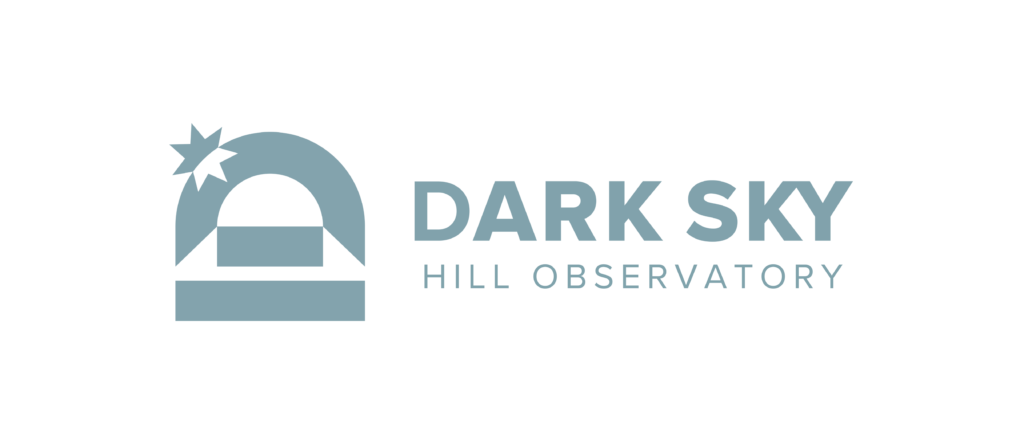
WELCOME TO YOUR PRIVATE SKYWATCHING EXPERIENCE IN COONABARABRAN, NSW
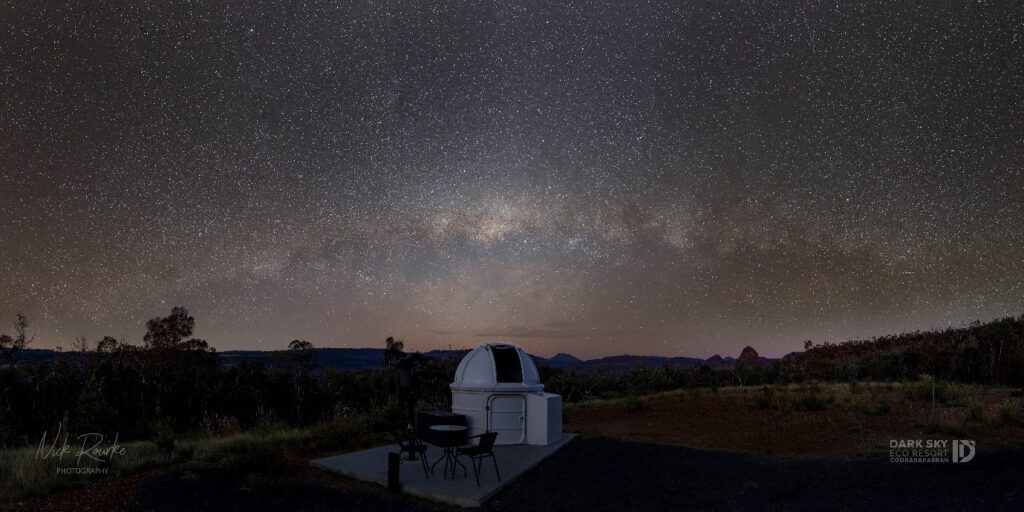
PLANET SPECIAL SEPT 2024 THRU FEB 2025.
Book 4 nights and pay for just 3 nights.
Coonabarabran is famous for having some of the most spectacular views of the night sky in the Southern Hemisphere. On site we have 2 state of the art telescopes and a projector which our knowledgable team use to run sky-shows for guests.
We want you to get the most from your stay with us, so check out our Sky Calendar to see what amazing astronomical events you can experience.
SKY CALENDAR
APRIL 2024
DARK SKY & MILKY WAY: 28TH MAR- 12TH APR
FULL MOON: 24TH APRIL
MAY 2024
DARK SKY & MILKY WAY: 27TH APR- 11TH MAY
FULL MOON: 23RD MAY
JUNE 2024
DARK SKY & MILKY WAY: 26TH MAY- 9TH JUN
FULL MOON: 22ND JUN
JULY 2024
DARK SKY & MILKY WAY: 25TH JUN- 9TH JUL
FULL MOON: 21ST JUL
MERCURY
AUGUST 2024
DARK SKY & MILKY WAY: 24TH JUL- 9TH AUG
FULL MOON: 20TH AUG
MERCURY
SEPTEMBER 2024
DARK SKY & MILKY WAY: 23RD AUG- 6TH SEP
FULL MOON: 18TH SEP
SATURN
NEPTUNE
OCTOBER 2024
DARK SKY & MILKY WAY: 21ST SEP- 6TH OCT
FULL MOON: 17TH OCT
SATURN
NEPTUNE
VENUS
NOVEMBER 2024
DARK SKY & MILKY WAY: 20TH OCT- 4TH NOV
FULL MOON: 16TH NOV
SATURN
NEPTUNE
VENUS
DECEMBER 2024
DARK SKY & MILKY WAY: 19TH NOV- 4TH DEC
FULL MOON: 15TH DEC
SATURN
NEPTUNE
VENUS
JUPITER & GALILEAN MOONS
URANUS
JANUARY 2025
DARK SKY & MILKY WAY: 18TH DEC- 3RD JAN
FULL MOON: 14TH JAN
JUPITER & GALILEAN MOONS
URANUS
MARS
ORION NEBULA & THE MAGELLANIC CLOUDS:
DEC 18- JAN 4
FEBRUARY 2025
DARK SKY & MILKY WAY: 16TH JAN- 3RD FEB AND
15TH FEB – 3RD MARCH
FULL MOON: 13TH FEB
JUPITER & GALILEAN MOONS
URANUS
MARS
ORION NEBULA & THE MAGELLANIC CLOUDS
MILKY WAY
MARCH 2025
DARK SKY & MILKY WAY: 17TH MAR- 1ST APR
FULL MOON: 14TH MAR
JUPITER & GALILEAN MOONS
URANUS
MARS
ORION NEBULA & THE MAGELLANIC CLOUDS
MILKY WAY
APRIL 2025
DARK SKY & MILKY WAY: 16TH APR- 1ST MAY
FULL MOON: 13TH APRIL
MARS
MILKY WAY
MAY 2025
DARK SKY & MILKY WAY: 16TH MAY- 30TH MAY
FULL MOON: 13TH MAY
MARS
MILKY WAY
JUNE 2025
DARK SKY & MILKY WAY: 14TH JUN- 28TH JUN
FULL MOON: 11TH JUN
MARS
MILKY WAY
JULY 2025
DARK SKY & MILKY WAY: 14TH JUL- 28TH JUL
FULL MOON: 11TH JUL
MARS
MILKY WAY
ASTROPHOTOGRAPHY
We keep it simple out here and you will see most of our photos are taken with Samsung Ultra 20 smartphones mounted on a tripod and using the Pro feature and Expert Raw app to set 20 or 30 second exposure and selecting an ISO of 1600 to 3200 with the Expert Raw stacking images over a 4-, 7- or 10- minute exposure.
Its quite easy and we love showing guests how to do it on their own devices.
Bring your own tri-pod or borrow one of ours and have a go.
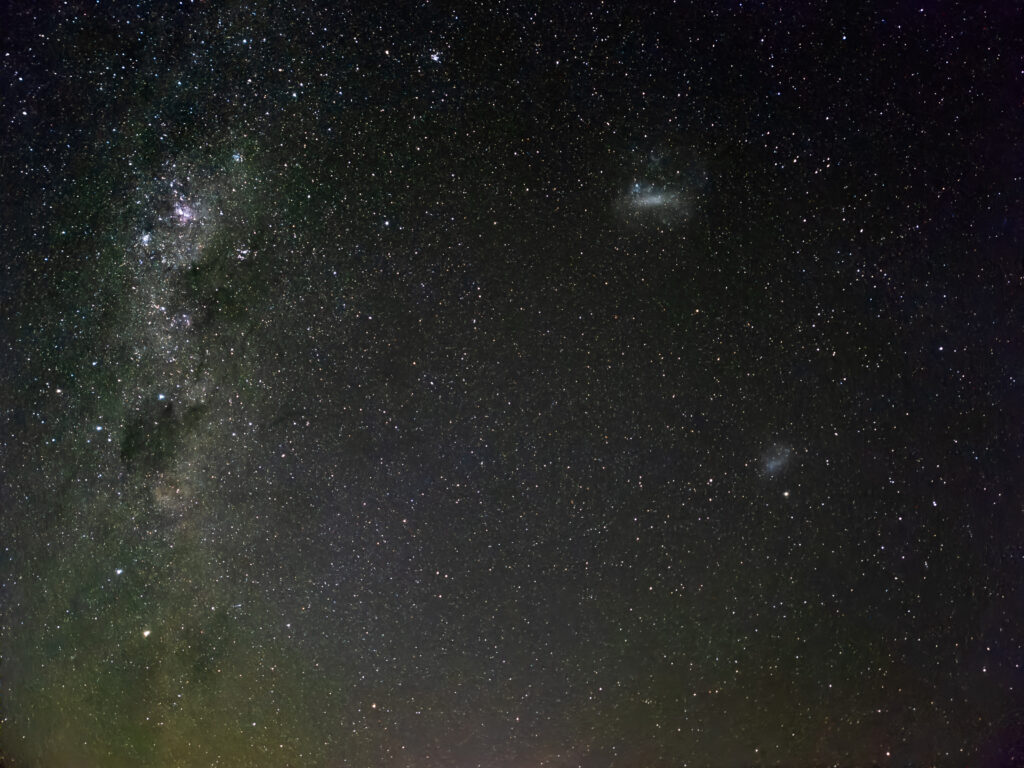
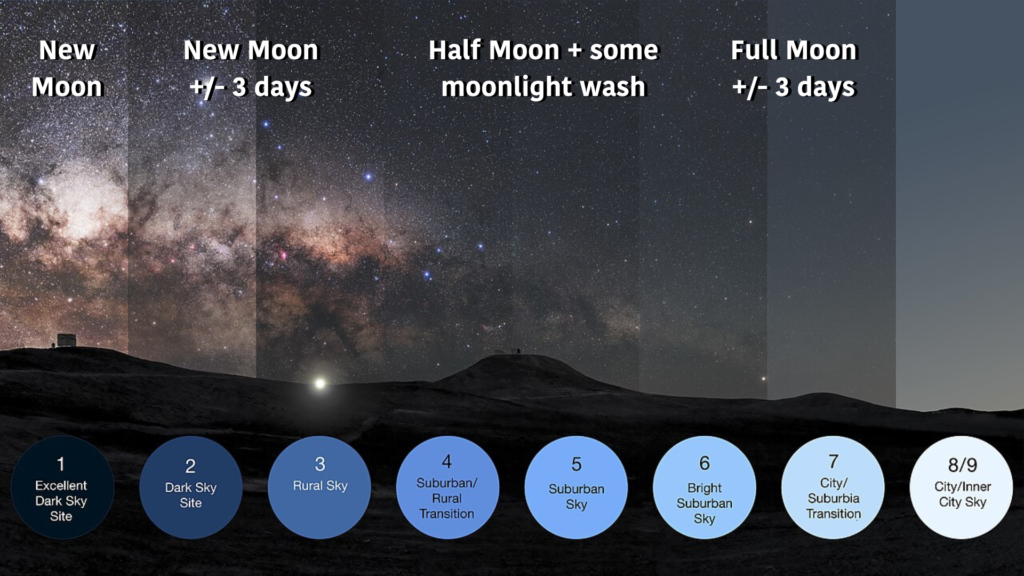
THE BORTLE DARK SKY SCALE AT DARK SKY HILL OBSERVATORY
The Bortle dark-sky scale (usually referred to as simply the Bortle scale) is a nine-level numeric scale that measures the night sky’s brightness of a particular location. We have shown on the chart what our night sky looks like based on the effect of the Moon. We are adjacent the Dark Sky Park so our night skies are as good as it gets for the Siding Spring Observatory that we look directly at from our elevation and vantage.

THE MOON
As the Moon works its way through the phases, more detail on the surface can be observed.
The silhouette against the black vastness of space highlights the crater ridges and, if you are lucky, a bat or a satellite will cross the surface in front of your eyes.
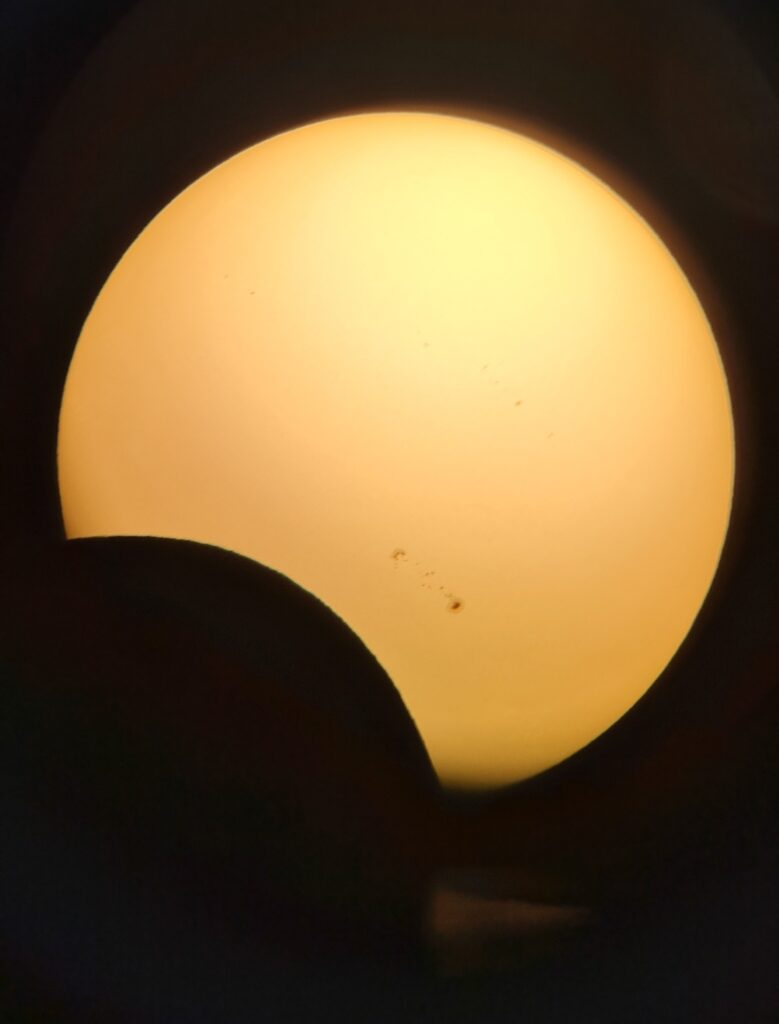
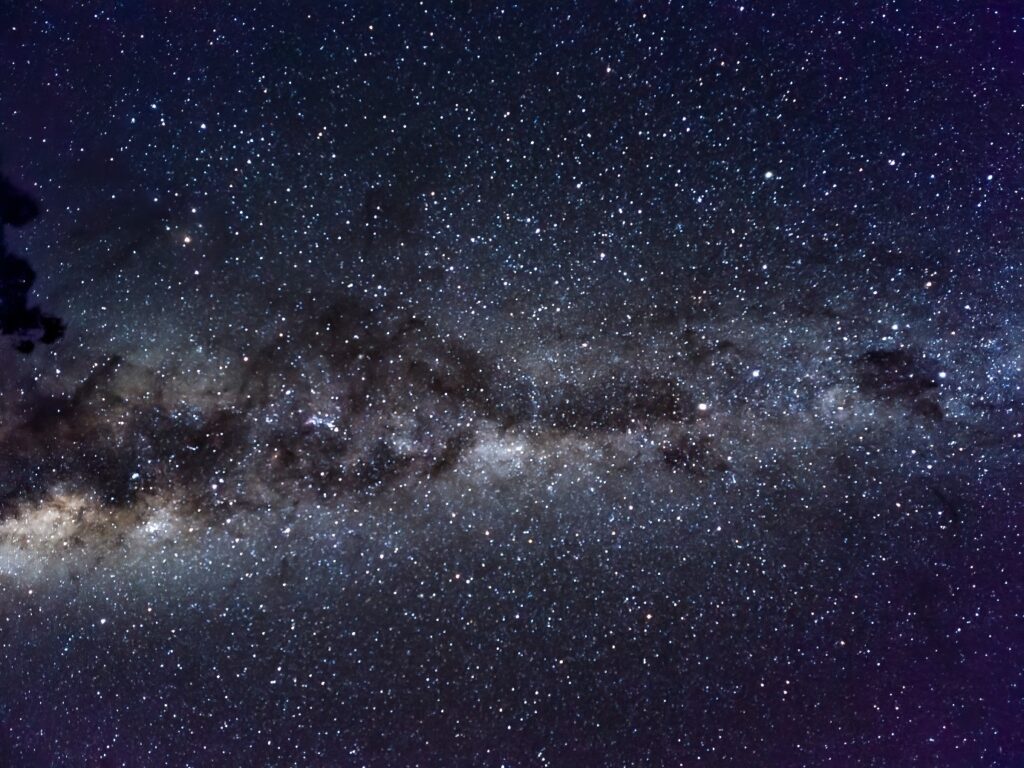
THE MILKY WAY
The Milky Way on a Bortle 1 night as photographed from our Samsung Galaxy Note 20 with a 30 second exposure and 1600 ISO using Expert Raw 10-minute stacking.
Viewing the milky way with the naked eye is a real treat. With our telescopes we can explore heaps of features scattered within the galaxy from the Lagoon Nebula to the Jewel Box and a globular cluster or 2.
We also check out a few red giant stars and some cooler white and blue looking stars along with the occasional double star.


